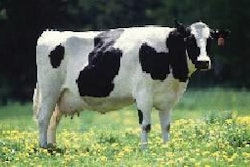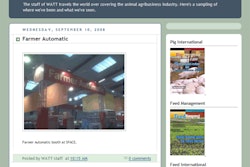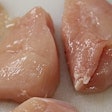Corn and soybean prices will stay at high levels for years to come, thanks to continued demand from the rapidly growing ethanol industry. That was the gloomy message from USDA chief economist Joseph Glauber as he testified before the U.S. Congress Joint Economic Committee in early May. Glauber told members to expect ethanol's demand for corn to continue to depress livestock production and increase consumer prices in the years ahead.
But some are — not surprisingly — calling such statements misinformed. Jon Doggett, vice president of public policy at the National Corn Growers Association, says population growth and oil prices, not diversion of corn for ethanol, are behind the woes of rising food and feed prices. In a report by the Red River Farm Network, Doggett said, "There are plants online now commercially producing grits for snacks, corn oil for human consumption, and feed for livestock and ethanol. We have food, feed and fuel. It is not an either/or situation."
But the word from others would lead you to believe that's exactly what it is. When Tyson president and chief executive Dick Bond made the case for most ethanol subsidies to be given the axe, the food versus feed versus fuel debate flamed higher. Bond's statement, reported by several mainstream financial media, came at the end of April and challenged the U.S. Congress to reduce or drop a federal tax subsidy and end import tariffs on sugar-based ethanol. Tyson reported a net loss of $5 million in its fiscal second quarter, and a month later warned higher input prices would add $1 billion to input costs this year, with $600 million coming from higher corn and soybean meal prices.
But, like the corn growers association, other companies have questioned whether blaming the ethanol industry is at least a bit off-target. Ethanol-producing Archer Daniels Midland Co. has historically gone on record saying that technologies developed through the ethanol boom would improve crop efficiency and defuse the food versus fuel concern.
But some believe ADM's interest in growing its corn-based ethanol business may be stating to wane. Suddenly it's a whole lot easier not to make money in ethanol. But experts say that companies like ADM — with a foot in both feed and fuel — are large enough and diverse enough to ride out the volatile corn-based ethanol market.
Bond has been quoted saying that diverting corn to make ethanol doesn't make sense and he warned that upward pressure on food prices will get much worse. A week before Bond's statements, Texas Governor Rick Perry called for a federally mandated ethanol production target to be slashed in half in that state due to concerns over food prices, a move backed by Bond. Texas is the first state to try to opt-out. In addition to Tyson's backing, the Texas governor garnered the support of poultry giant Pilgrim's Pride Corporation.
Meanwhile, the folks at the Renewable Fuels Association (RFA), the U.S. ethanol industry's lobbying voice, describe the allegations as just plain wrong.' RFA President Bob Dineen has said not only is ethanol not to blame for contributing significantly to rising food prices, but the industry is actually helping to keep oil prices lower than they might otherwise be.
Alternatives to grain
Some in the feed business appear to be taking matters into their own hands and are forging ahead with plans for developing biofuels from non-food sources.
Alltech recently announced it has received a grant of up to $30 million from the U.S. Department of Energy (DOE) to be used towards the establishment of its rural community biorefinery. The plant will be one of the first in the U.S. to utilize cellulose, such as switch grass, corn cobs and corn stover, at raw material levels of up to 30 percent. The fiber will be converted to ethanol and other value-added products. The facility will also have the capability to produce algae, a plant that can theoretically produce 5,000 gallons of biofuel per acre per year, whereas corn can produce 400 gallons per acre.
A few weeks after Alltech's announcement, Genencor, a division of Danisco A/S, and DuPont announced an agreement to form DuPont Danisco Cellulosic Ethanol LLC, a 50/50 global joint venture to develop and commercialize the leading, low-cost technology solution for the production of cellulosic ethanol. The partners plan a three-year investment of $140 million, which will initially target corn stover and sugar cane bagasse. Future targets include multiple ligno-cellulosic feedstocks including wheat straw, a variety of energy crops and other biomass sources.
The search for renewable fuels is bound to accelerate. How long the U.S. can afford to rely heavily on grain to fuel its future is questionable.
.jpg?auto=format%2Ccompress&crop=faces&fit=crop&h=48&q=70&w=48)





.jpg?auto=format%2Ccompress&fit=crop&h=167&q=70&w=250)












